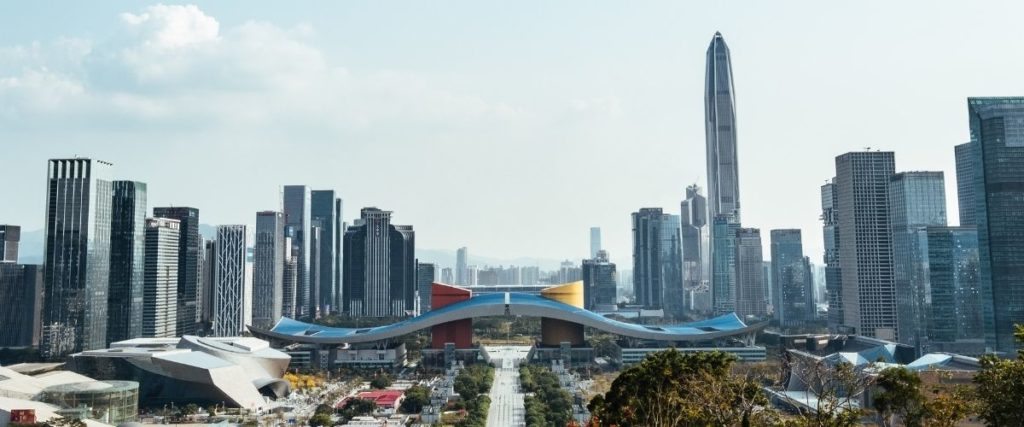Chinese President Xi Jinping promised new measures on Wednesday to promote the development of Shenzhen, China’s biggest tech centre. These would include strengthening intellectual property rights (IPR), stepping up deregulation in select industries, and attracting more foreign investment.
In a speech celebrating the 40th anniversary of the establishment of the Shenzhen Special Economic Zone (SEZ), Xi heaped lavish praise onto the city, hailing its rapid development over the past 40 years as “a miracle in world development history”, according to Xinhua News.
He attributed its status as an SEZ as a larger movement crucial to advancing national economic reform and helping the country progress towards its long-term goal of socialist modernisation.
Shenzhen is currently home to various Chinese technology giants such as Huawei, Tencent, and ZTE, and is well-placed to rise in economic eminence, given its growing stock exchange and strategic location within the Greater Bay Area.
Businesses in Shenzhen are in line to receive a flurry of pilot business reforms by the end of 2020 after the Chinese Communist Party and the State Council released a new five-year plan for the city on Sunday.
Deregulation will begin in specific sectors – energy, telecommunication, public service, transport, and education – to maximise industry performance.
Top-down efforts to attract foreign investment will also increase, with the city set to loosen regulations on tech-based foreign investments and tighten enforcement of intellectual property rights.
The Chinese government appears to be aiming to bolster international trust in Shenzhen’s financial system, promising that “the finance and shipping industries will be strengthened, with more efforts to advance the renminbi internationalization and improve the foreign exchange management system.”
The five-year plan will also lower barriers to foreign talent obtaining Chinese permanent residence permits and help them attend professional qualification examinations.
In his speech, Xi also emphasised the importance of Hong Kong-mainland integration, encouraging young people from Hong Kong and Macau to “increase their sense of belonging to the motherland” and consider moving and working in the mainland.
Tensions between the youth of Hong Kong and the Chinese government have never been higher since nearly two million Hong Kong protestors took to the streets in June 2019 to protest a now-aborted bill which would have allowed for Hong Kong prisoners to be extradited to China.
But, it isn’t the first time that Xi has shown an interest in boosting the affinity of Hong Kong youths towards the mainland. In November 2019, Mr Shen Chunyao, head of the Parliament’s Basic Law Committee, indicated Beijing’s interest in introducing “patriotic education” for youth and public servants in response to ongoing anti-government protests, in order to help them better understand “the national reality, China’s history, and Chinese culture”.
Over a million mainland Chinese people live and work in Hong Kong today. The South China Morning Post reported on Monday that 60% of investment banking jobs in Hong Kong are now filled by mainland Chinese bankers, while Hong Kongers’ share of investment banking jobs has dropped from 40% in 2018 to about 30%, with some industry veterans believing that the trend indicates a reluctance among Chinese securities firms to hire Hong Kongers as a result of the anti-government protests.
Related Articles
Australia Unveils AUD 98 Billion Stimulus in New Budget
Singapore Reaffirms Diplomatic Ties with China, Despite Rising US-China Tensions
Japanese PM Yoshihide Suga’s Most Pressing Concern is COVID-19





